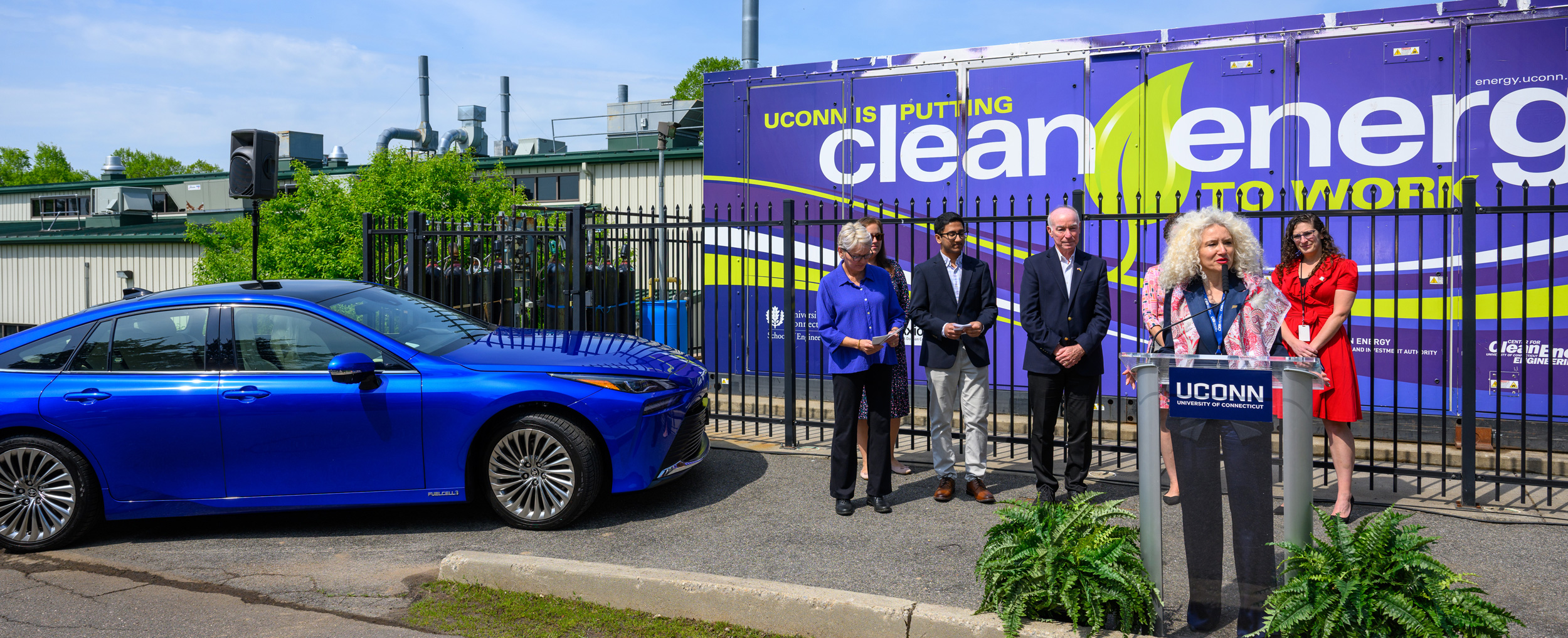
President’s Carbon Reduction Working Group
The President’s Carbon Reduction Working Group will continue to support ongoing energy conservation efforts but will also identify, evaluate, and recommend specific cost-effective initiatives and actions within the larger context of the university’s available resources. This includes academic research and other programs, that will increase the use of clean and sustainable energy on UConn’s campuses and reduce environmentally harmful emissions. The goals of this group include UConn achieving carbon neutrality on its campuses by 2030, with the ultimate goal of zero carbon by 2040.

Working Group Members:
- Stanley Nolan, Interim Associate Vice President, Facilities Operations
- Michelle Williams, Chief of Staff, President’s Office
- Jeffrey Geoghegan, EVP for Finance & CFO UConn and UConn Health
- Laura Cruickshank, Associate Vice President, Planning, Design & Construction
- Anne D’Alleva, Provost & Executive Vice President for Academic Affairs
- Pamir Alpay, Vice President, Research, Innovation, and Entrepreneurship
- Gail Garber, Director, Government Relations
- Tammie Corioso, Director, FO Business Services Center
- Katie Milardo, Associate Director FO Conservation and Compliance
- Elizabeth Craun, Director of Major Projects, Planning Design & Construct
- Kimberly Rollins, Department Head & Professor, Agricultural and Resource Economics
- Anji Seth, Department Head & Professor, Geography
- James O’Donnell, Professor & Director, Marine Sciences
- Ugar Pasagullari, Professor & Director, Mechanical Engineering
- Jasna Jankovic, Assistant Professor, Material Sciences & Engineering
- Elaina Hancock, Public Relations Associate, Communications
- Erica Pudvelis, Project Manager, Facilities Operations
- Mary Greenwell, Academic Finance & HR Coordinator, Provost Office, Public Policy
- Alyssa McDonnell, Ph.D. Student, Department of Agricultural & Resource Economics
- Dylan Steer, Student, Office of Sustainability
- Liam Enea, Student, Clean Energy Society
- Lili Nagy-Leranth, Student
- Lillian Adamo, Student, Office of Sustainability
- Nicolas Lombardo, Graduate Student
*Additional support members have been invited to speak about university initiatives and share expertise.
Meetings
Spring 2024
February 2, 2024 (pdf)
Active Transportation and Sustainability Action plans, March 22, 2024
UConn Strategic Plan, April 5, 2024
Okanagan Charter, April 26, 2024
Fall 2023
Facilities Operations Project Updates and Student Updates (pdf)
Meeting 2: Carbon Offsets (pdf)
Meeting 3: C2E2 Seminar Announcment_Dr Elango Elangovan (pdf)|
Meeting 4: Meeting 4 UPDC Focus on Sustainability (pdf)
Spring 2023
Week 1: Introductions (pdf)
Week 2: Energy Conservation Program (pdf)
Week 3: Solar Projects (pdf)
Week 4: Hydrogen (pdf)
Week 5: Hydrogen Fuel Cells (pdf)
Week 6: REC Funds and Program (pdf)
Week 7: Geothermal (pdf)
Week 8: CRWG (pdf)
Week 9: Greenhouse Gas Data and Tracking (pdf)
Fall 2023 Semester Summary (pdf)
Links
President Maric’s Testimony to the CGA
Connecticut Hydrogen Task Force Report (pdf)
Energy Conservation
Events
Past Events
Carbon Coffee Hour: Carbon Reduction Strategies March/April 2023 (pdf)
Carbon Coffee Hour Supplying UConn's Energy October 2023 (pdf)
Carbon Coffee Hour Science One Tour October 2023 (pdf)
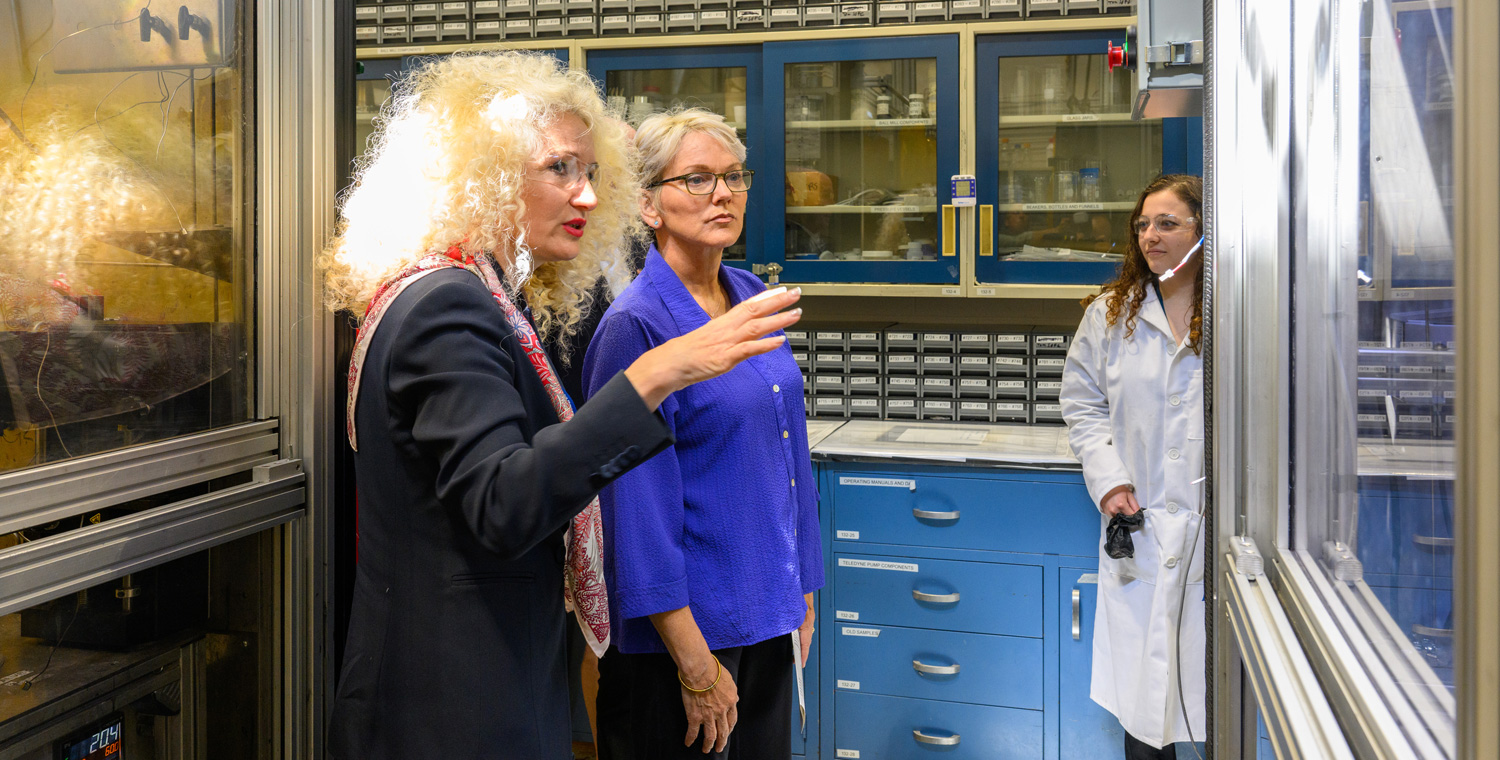
Projects
Construction Underway
UConn's construction of renewable infrastructure for the new 650 bed suite-style South Campus Residence Hall is underway. This includes new utilities and expansion of the South Campus Chiller Plant to accommodate a new geothermal heating and cooling system to meet the cooling and heating needs of the residence hall. The geothermal field in Lot S commenced drilling the 78 wells in December 2023 and is making steady progress. The wells go 750 feet deep into bedrock which will act as a thermal battery, storing heat during the summer to be utilized in the winter. This initiative aligns with the 2024-2034 Strategic Plan goals of Wellness of people and Planet and Excellence in Research, Innovation, and Engagement.
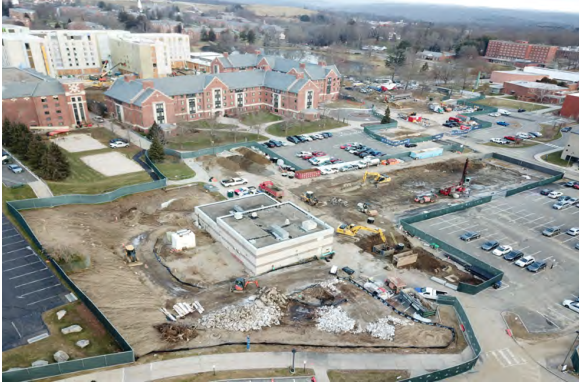
Designs Underway
Solar canopies
UConn is reviewing bids for construction of solar canopies over eleven parking lots as part of our Investment Grade Energy Audit under the Energy Services Performance Contract Phase 2 which will be issued 2024-Q2. This program will retro commission ~2 million square feet of our existing buildings to reduce their carbon footprints and add up to 7.5 MW of clean solar power generation on site.
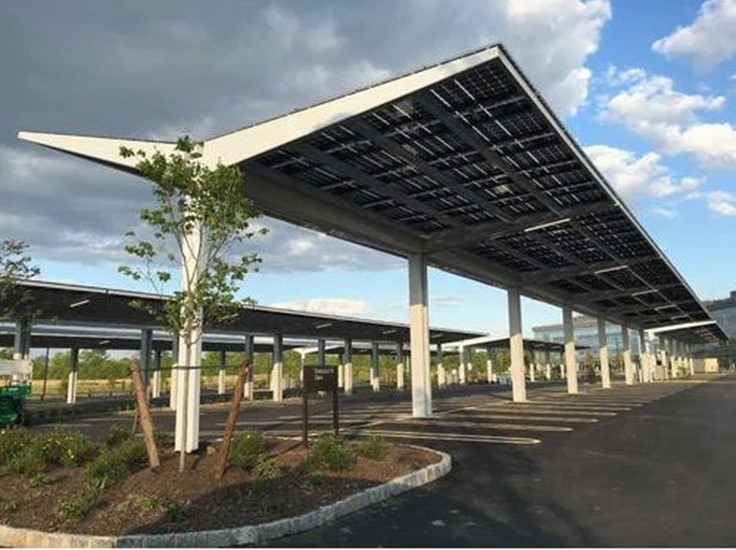
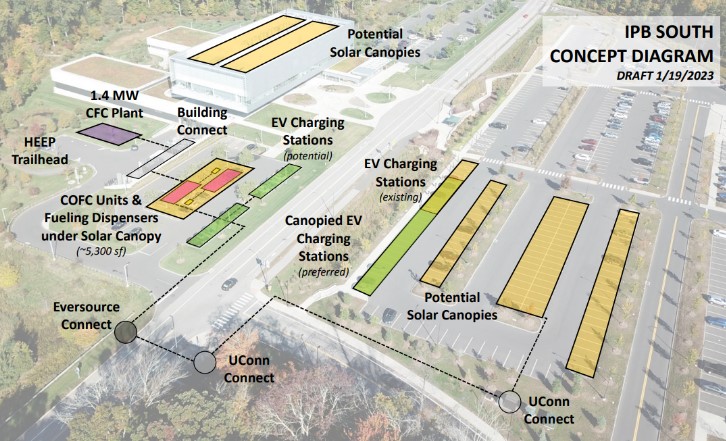
Fuel cells
UConn has awarded contracts to Fuel Cell Energy FuelCell Energy (FCE) and Venture Funding Specialists – Energy Services (VFS)/Doosan Fuel Cell Americas, global leaders in stationary fuel cell installations for decarbonization and the production of hydrogen. The installation of four Solid Oxide Fuel Cells (SOFC) as Distributed Energy Resources (DERs) at the Storrs Campus will generate electrical and thermal energy to be consumed at the installation site through Energy Services Power Purchase Agreements in which the vendors will design, build, and operate the fuel cell systems. Two units will be installed adjacent to the Innovation Partnership Building which will soon include the Center for Clean Energy Engineering. Two units will be installed adjacent to the Putnam Refectory and Werth Residence Tower. This initiative aligns with the 2024-2034 Strategic Plan goal Excellence in Research, Innovation, and Engagement. Design and Construction will commence in May 2024.
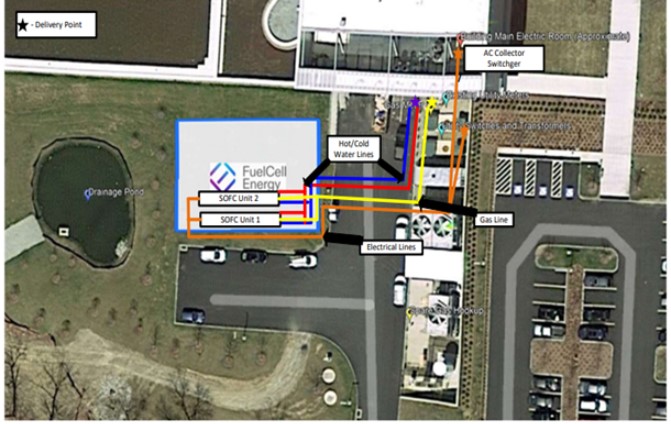
Coming Soon
More EV chargers
UConn was awarded matching grants from the Department of Energy and Environmental Protection (DEEP), Connecticut’s Volkswagen (VW) EVSE ZEV Infrastructure Program (ZIP), and Eversource to install additional Electric Vehicle Chargers at the Storrs and UConn Health Campuses. UConn continues Leading by Example with this installation bringing charging capacity on campus to over 120 ports, well ahead of the 2030 Connecticut Electric Vehicle Roadmap goal which requires 81 ports at our campuses. This installation advances reducing Scope 3 GHG Emissions at UConn and aligns with our 20224-2034 Strategic Plan goals for Wellness of People and Planet. Construction will begin in May 2024. UConn Health will be installing 28 Level 2 chargers dual port chargers amongst the three parking garages and the planned locations for the additional 30 charging ports are shown below for Storrs Campus.

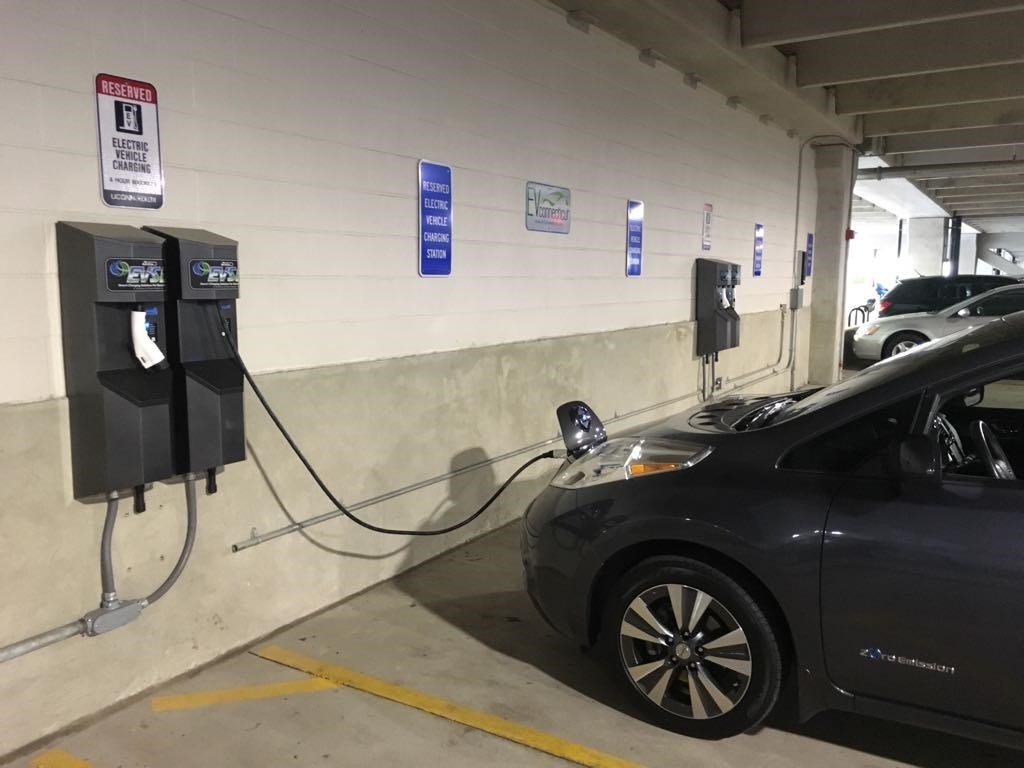
Hydrogen Fuel Dispenser
UConn has selected and ordered construction of an IVYS Energy Solutions Hydrogen Fuel Dispenser capable of rapidly filling up to 24 Hydrogen Fuel Cell Vehicles scheduled to join the campus alternatively fueled vehicle fleet. This dispenser has received acceptance from both light duty vehicle manufacturers. UConn continues Leading by Example with this installation as a component of our strategic initiative to accelerate carbon mitigation reducing Scope 3 GHG Emissions at UConn and towards reaching the Carbon Neutrality Goal by 2030. This initiative aligns with the 2024-2034 Strategic Plan goals for Wellness of People and Planet and Excellence in Research, Innovation, and Engagement. Construction of the installation site adjacent to our Reclaim Water Facility will commence in May 2024.
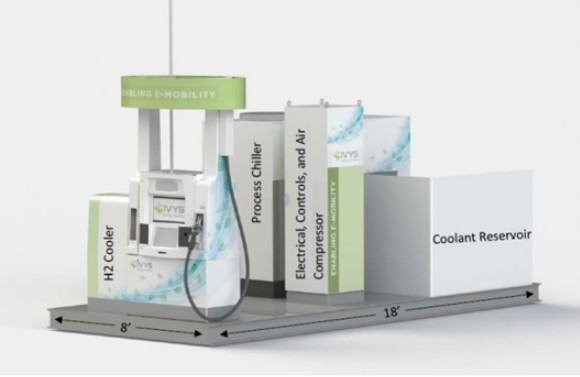
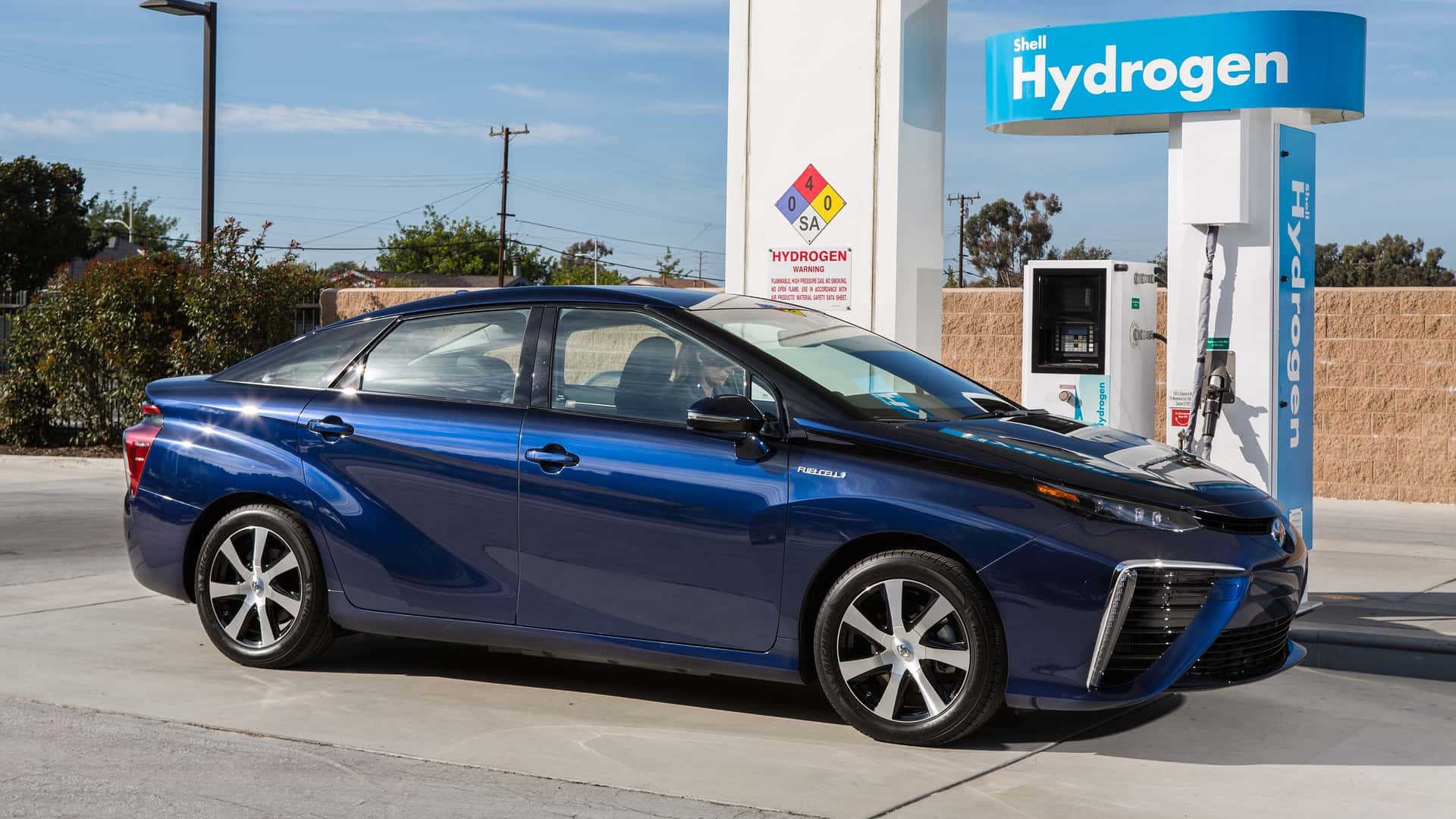
Lower emissions from Cogeneration Facility
UConn is modifying our Cogeneration Facility turbines to operate on blended hydrogen fuel which is anticipated to decrease current emissions by an additional 30%. In partnership with Caterpillar Solar Turbines Hydrogen Fuel which has over a decade of operating experience using hydrogen in cogeneration applications, UConn will commence the modifications in Fall 2024. Feasibility studies are being conducted to enable hydrogen production on site to supply the cogeneration facility using solar canopies to power the electrolyzer units. This initiative will enable research in the Northeast similar to projects underway at University of California - San Diego in partnership with San Diego Gas & Electric and Clemson University in partnership with Siemens and Duke Energy H2 Orange CHP. This initiative aligns with the 2024-2034 Strategic Plan goal for Excellence in Research, Innovation, and Engagement.
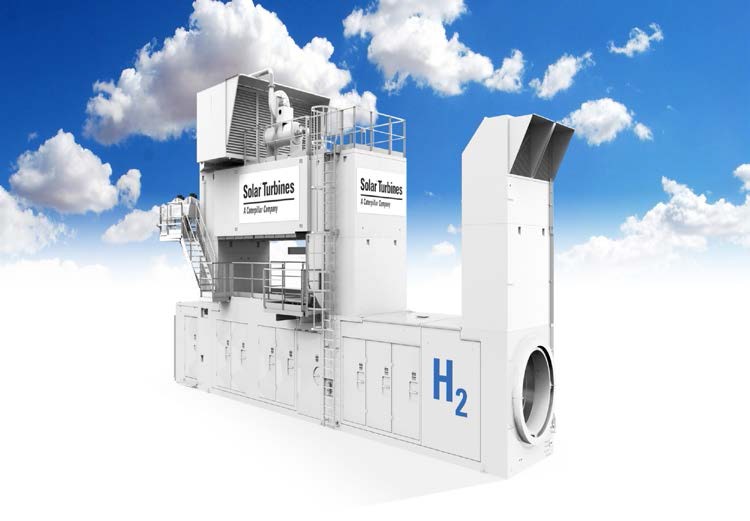
Energy Conservation Program
The UConn Office of Energy Conservation has been continually trying to reduce the carbon footprint of the university compared to the 2001 baseline. UConn utilizes data from our metering systems to determine which buildings require intervention to make them more sustainable and efficient. This program includes projects such as SLED 1 (pdf). Other projects include the installation of solar panels onto the Bus Stops and investigating larger solar canopy installation over existing parking lots. The Energy Conservation Program uses a combination of upgrading existing structures and improving design efforts in new structures to improve the energy efficiency of UConn’s campuses.
Data FY22
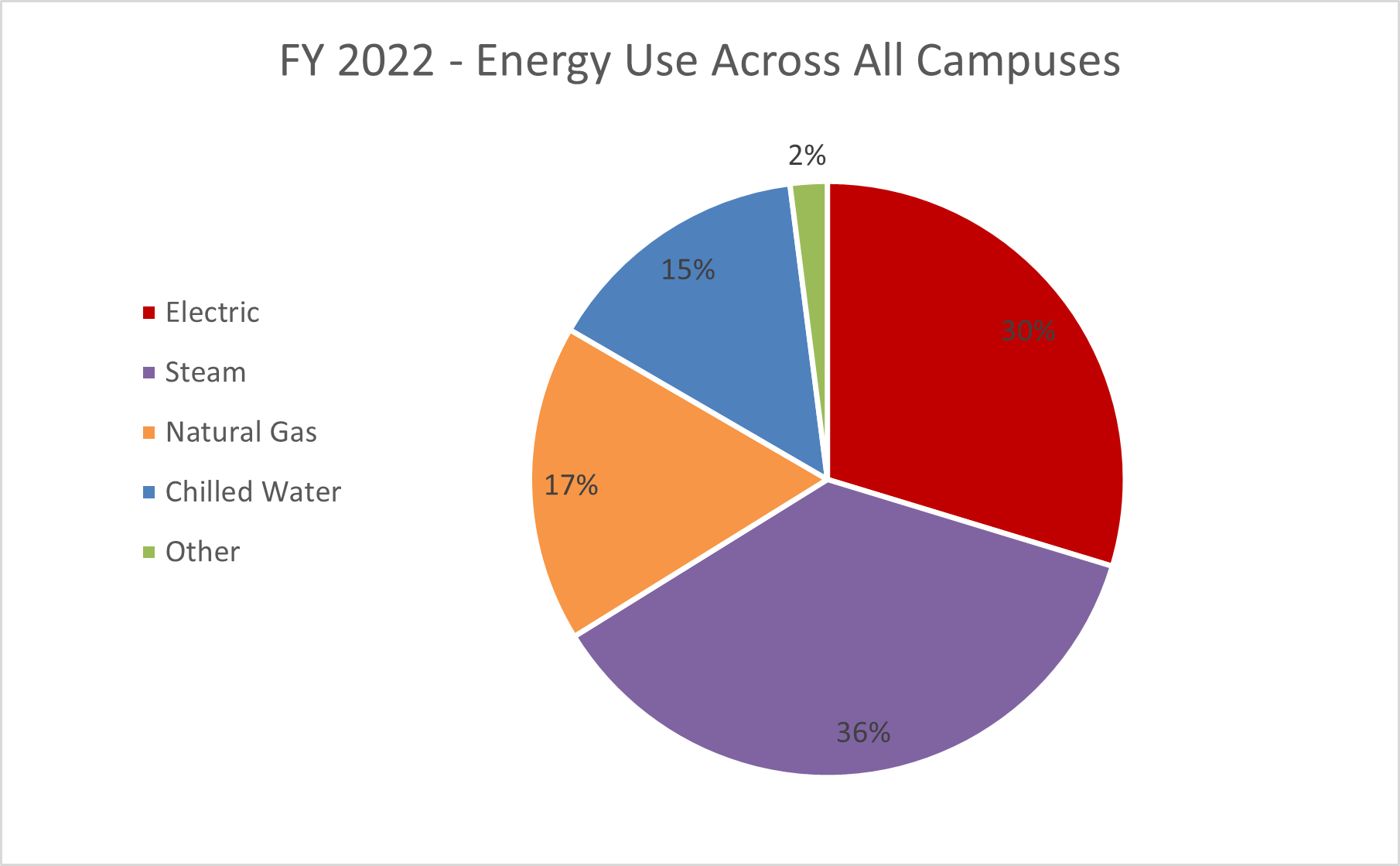
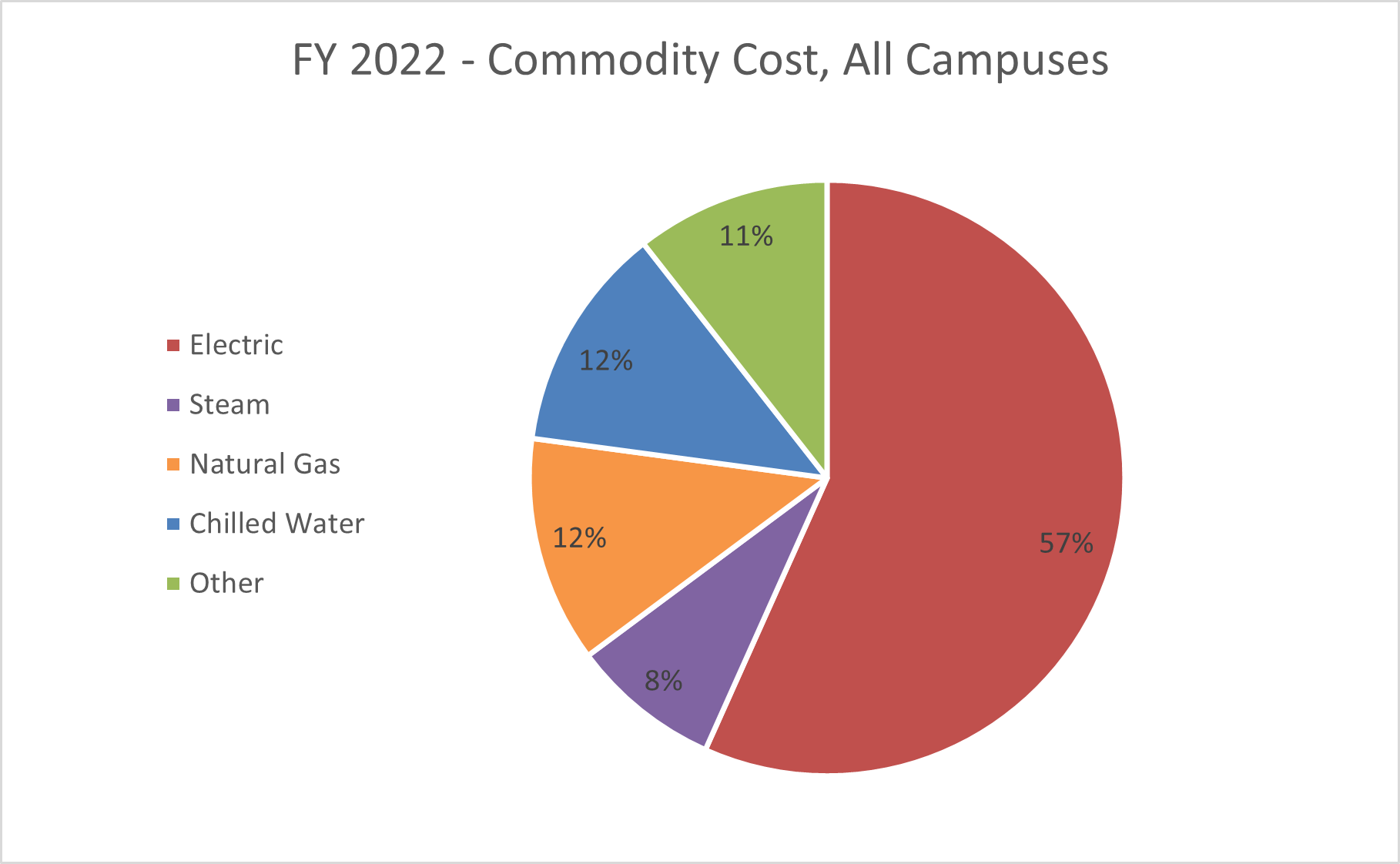
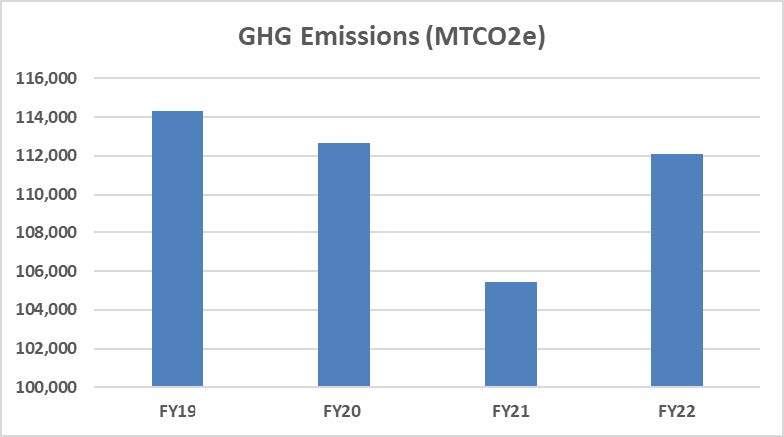
Sustainability Action Plan
President Maric has committed UConn to the goal of carbon neutrality by 2030, and has released her Sustainability Action Plan. She has spoken with the Connecticut General Assembly about the results of the Hydrogen Study Task Force.
